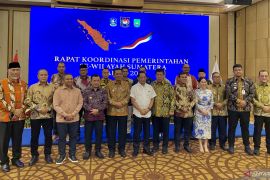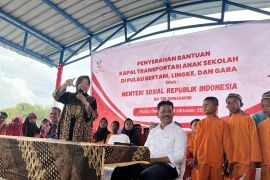Ani Dewiyana, the hospital's director, informed journalists on Friday that the six-month-old infant named Fadih has been under hospitalization for the past 72 hours after a local health center suggested that the child be given treatment at the public hospital.
Syahrudin and Munaroh are the parents of malnourished Fadih. His father works as a scavenger and cleaning service worker. The ACT Foundation-Riau Islands Chapter has offered voluntary assistance to ensure the infant's immediate recovery.
Intan Komalasari, the foundation's Program Implementer, stated that Fadih was a premature infant, who should have been kept in an incubator after being born 3.2 kilograms in weight.
Fadih has not been breastfed since birth but has instead been fed infant milk, she pointed out.
Indonesia continues to face problems related to infant and children malnutrition, though the UN agencies have cited significant progress in the fight against hunger, reporting a drop in the number of undernourished children.
This was revealed in a recent joint press statement by Indonesia's Planning Agency and four other UN agencies in the country - the United Nations Children's Fund (UNICEF), World Health Organization (WHO), World Food Programme (WFP) and International Fund for Agricultural Development (IFAD).
The statement showed that recent statistics indicated positive trends in food security and malnutrition, with Indonesia recording progress in the fourth year of implementation of the Sustainable Development Goals (SDGs).
Nonetheless, it has cautioned that stunting owing to acute malnutrition remains rampant in Indonesia, with one in three children in the country found to be stunted.
Head of the nutritional section at the Yogyakarta Health Office Endang Pamungkasiwi remarked that the surfacing of cases of malnutrition did not at all times correlate with the region's economic conditions.
In fact, Endang pointed out that malnutrition did not necessarily stem from poverty, but cases of undernourished children were found in high-income families.
The inability to properly tend to children was largely observed among career-oriented women or those working outside their homes. In addition to not being able to care for their children and not having the time, they simply entrust their children to caregivers, who are ill-equipped and lack both adequate knowledge and experience to properly care for them.
EDITED BY INE
Translator: Yuniati JN, Rahmad Nasution
Editor: Fardah Assegaf
Copyright © ANTARA 2019












